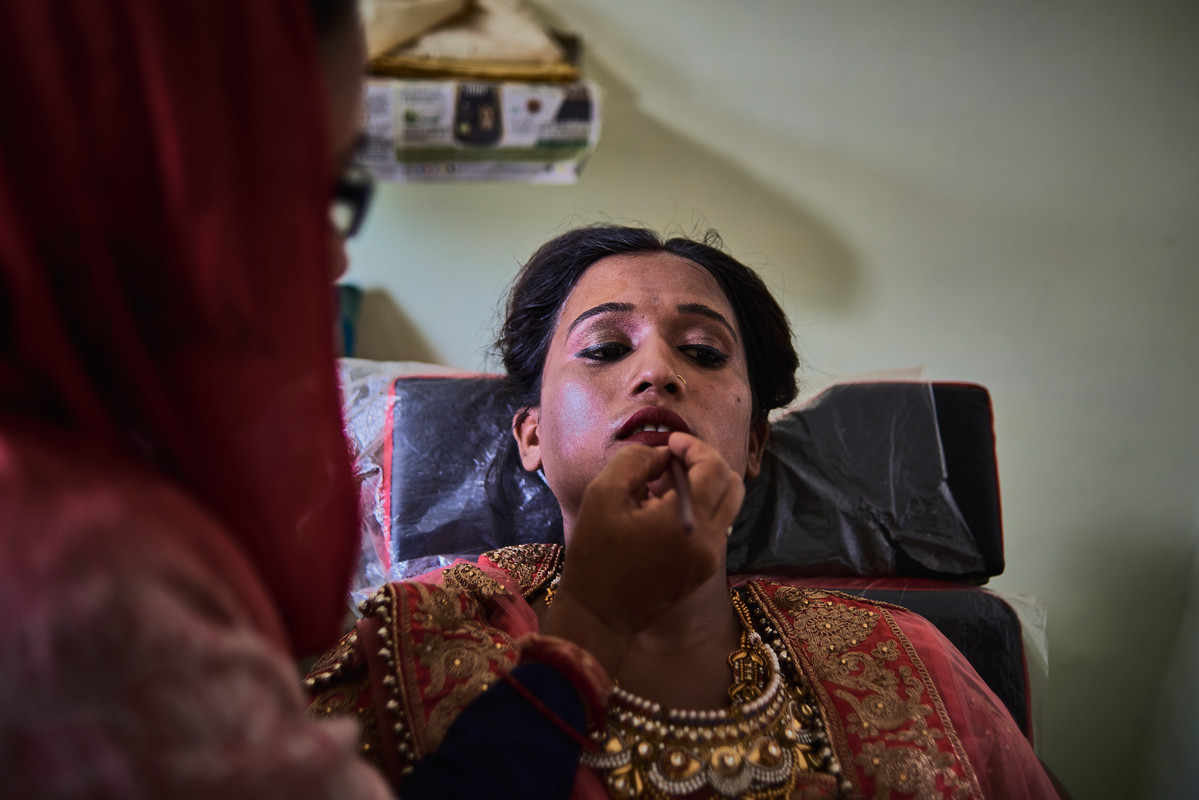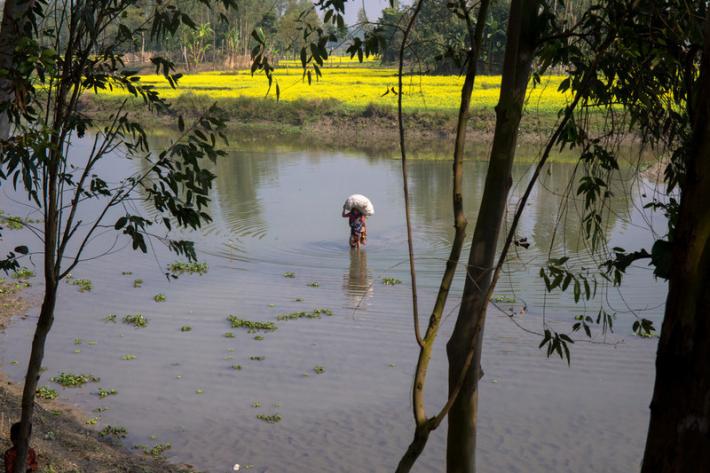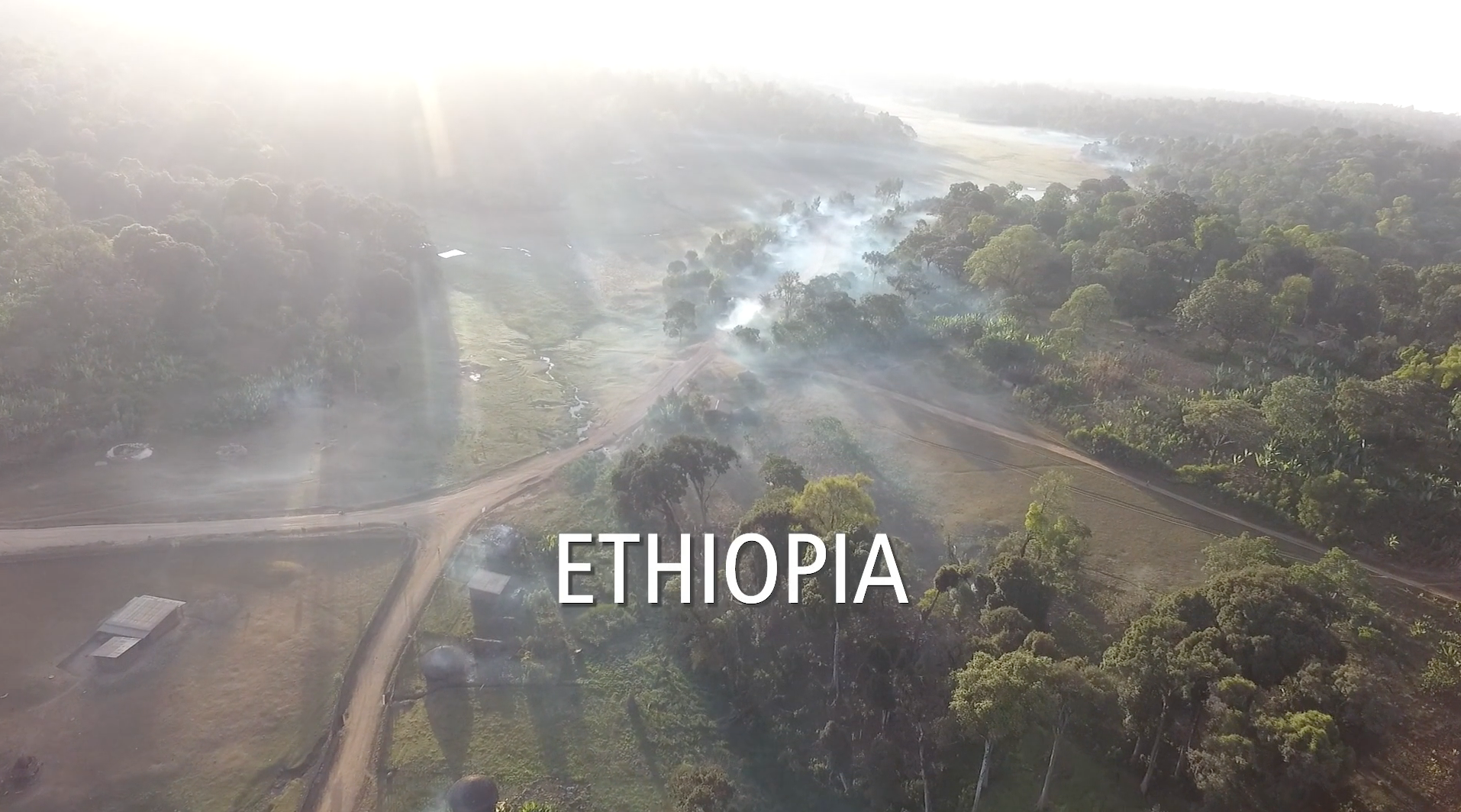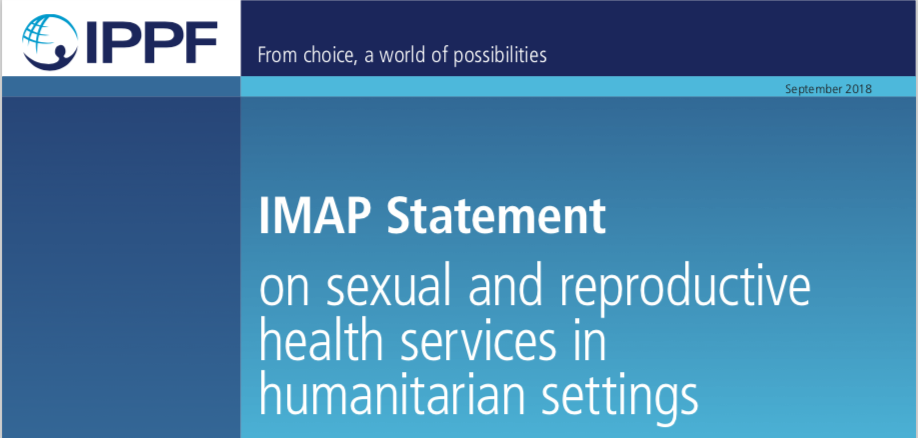Spotlight
A selection of resources from across the Federation

HIV Theory of Change
Our HIV Theory of Change is to clarify the goals and vision of IPPF’s HIV programme and to articulate the different pathways and strategies IPPF uses to contribute towards its HIV goals and vision.
Filter our resources by:


| 08 August 2019
Watch - Beauty Behind Bars: Life after prison for women in India
India is home to 20 female-only prisons, that have the capacity to hold just 5,000 inmates. Women currently make up 4% of India's prison population. Before they reach prison, many women have already experienced sexual and gender-based violence. Many inmates face discrimination and are often ostracized from their community and their families once they are released. Realizing a gap in care for women once released, the Family Planning Association of India (FPAI) have stepped in to ensure women are equipped with not only healthcare whilst in prison but life training skills. Skills that will financially support them and their children with or without the support of their families. Established in 1949, the Family Planning Association of India has provided life skills training ranging from beauty parlour related work to car mechanics to 768 women in six locations.

| 03 April 2019
Improving the quality and availability of post-abortion care in a humanitarian crisis
The world is facing stronger and longer natural disasters, protracted complex emergencies, conflicts and epidemics. These humanitarian crises can expose weakness in health systems, with particularly serious consequences for women and girls in need of reproductive health care. To improve the quality and availability of post‑abortion care during a flood, the University of Leicester and International Planned Parenthood Federation South Asia Region (IPPF-SAR), in collaboration with the Government of Bangladesh, developed and measured the impact of an integrated intervention package, called RHCC. First tested in a flood-prone area of Bangladesh, this novel approach includes: i) Pre-positioning medicines and supplies, using the UNFPA’s Inter-Agency Reproductive Health Kit 8; ii) Capacity building of service providers; and iii) Community awareness raising. Supported by IPPF's Innovation Programme, the project aligns with IPPF’s commitment to ensuring that crisis-affected populations receive timely, quality, life-saving, gender-responsive and inclusive sexual and reproductive health services.

| 26 November 2018
Watch: Bridging the Gap
Ethiopia is the second most populous country in Africa and the tenth most populous in the world. It is estimated that two-thirds of women do not have access to sexual and reproductive healthcare services. Our member association - Family Guidance Association of Ethiopia (FGAE) is bridging the gap between the need for healthcare and women by bringing services into the heart of the workplace across Ethiopia, a country where 47% of the workforce is female. FGAE currently provides services to over 125,000 people at sixteen large-scale workplaces across Ethiopia, from coffee plantations to textile factories.

| 30 October 2018
Watch: Ending child marriage in Malawi
Malawi has one of the highest rates of child marriage in the world. It's estimated that 47% of women and girls are married before the age of 18. In 2017 to help combat child marriage, Malawi changed the legal age of marriage to 18 but despite the change in the law, early child marriage still occurs in many villages. IPPF member association, Family Planning Association of Malawi (FPAM), is teaming up with social workers and local community leaders to form community watch groups, to help end child marriage.

| 17 September 2018
IMAP statement on sexual and reproductive health in Humanitarian settings
Today, unprecedented numbers of people are living in a state of crisis or emergency. In 2018, it is estimated that 135.7 million people are in need of humanitarian assistance, with conflict and natural disasters predicted to be the biggest drivers. Of those in need, approximately one-quarter is estimated to be women and girls of reproductive age (aged 15–49) and approximately 5 million will be pregnant. Globally, 60% of preventable maternal deaths take place in settings of conflict, fragility, displacement and natural disasters.
| 19 June 2018
Humanitarian Strategy
IPPF’s Strategic Framework (SF) 2016-2022 commits the organisation to lead a locally-owned globally connected movement that provides and enables services, and champions sexual and reproductive health and rights (SRHR) for all. Increasing numbers of people face crises or live in chronically insecure settings. In recent years we have scaled up the number of sexual and reproductive health services and information provided to people in emergencies from 1.3m in 2013 to 3.2m in 2016, but we can do much more. The goal of this strategy is to improve access to life-saving SRHR for crisis-affected people in all their diversity. As the situation normalises after a crisis, we aim to leave behind stronger MAs sustaining quality services to diverse populations. IPPF’s model for SRHR in crisis connects the key elements of humanitarian action (prevention and preparedness, response, recovery and resilience) with long-term, equitable development.















